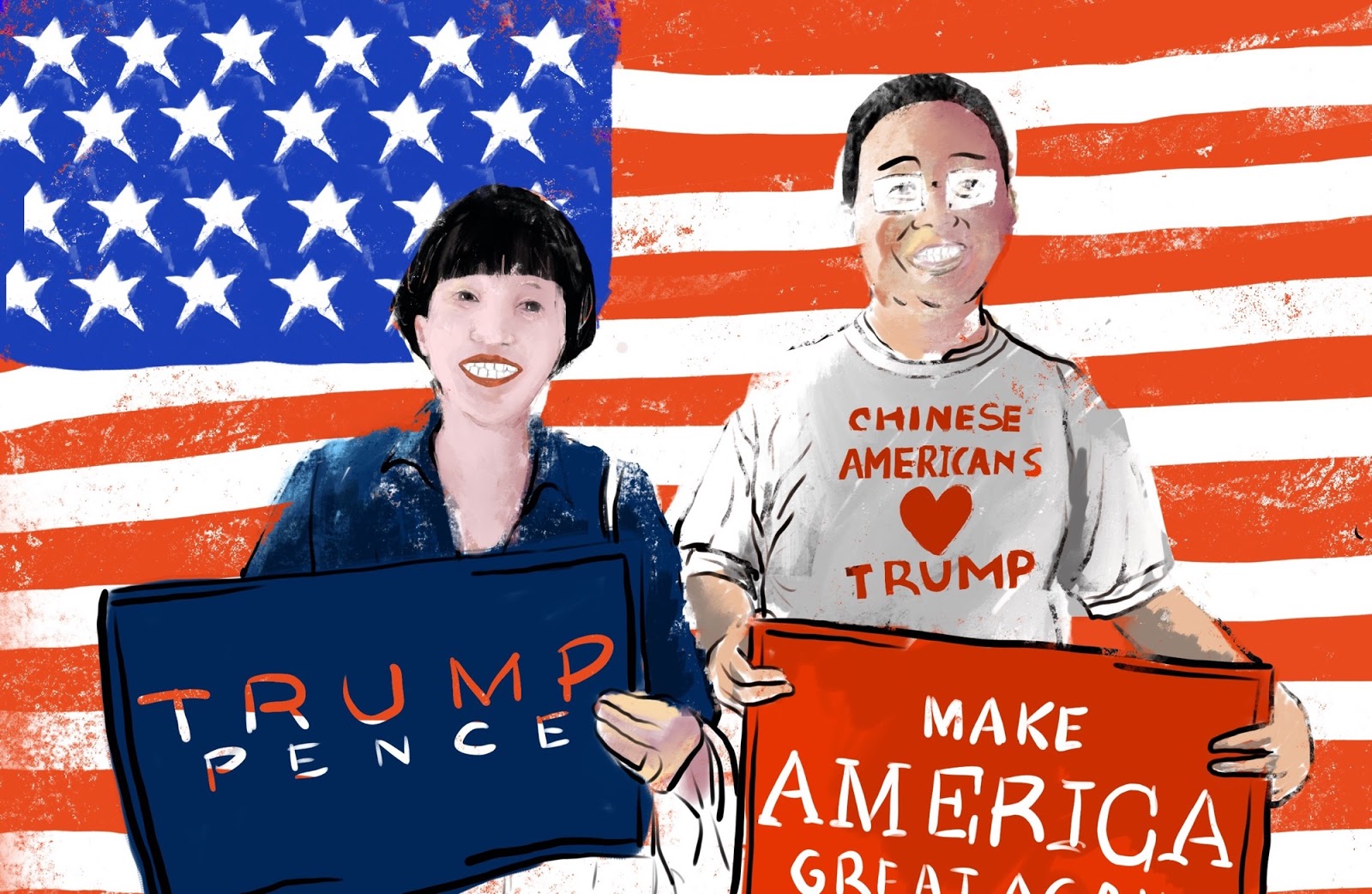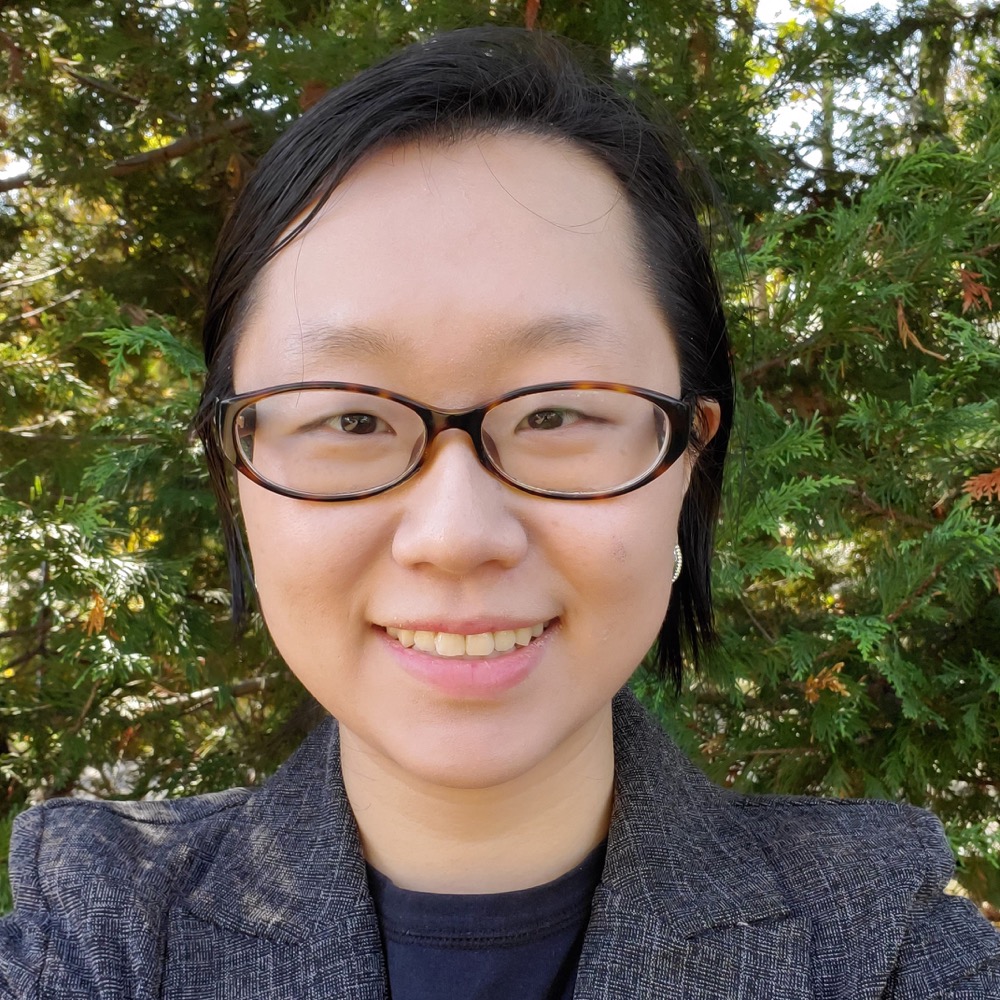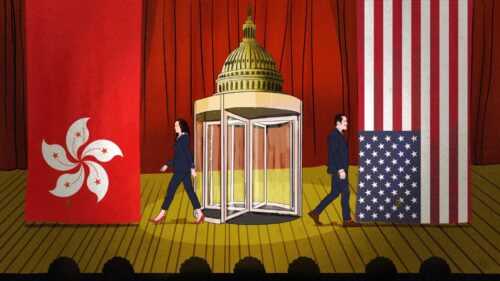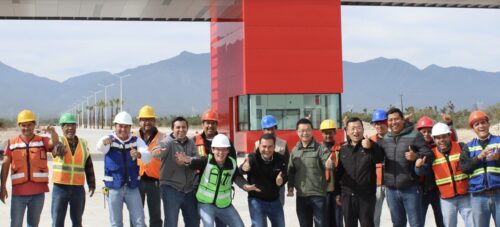‘Asian people have American values’: The meaning of Trump’s Chinese-American support
Who are the Chinese Americans voting for Trump? They are successful entrepreneurs, devout Christians, proud Americans, vocal politicians — and an enigma to unpack.

Asian Americans overwhelmingly supported Hillary Clinton in 2016, but much has been made about the fact that 35% of Chinese-American voters — the largest percentage among Asian Americans — chose Donald Trump. These last four years, Trump has not made it easy for these Chinese Americans — many of them first-generation immigrants — to like him. He’s ramped up anti-China rhetoric this past year, and used deliberately inflammatory terms such as “Chinese virus” to refer to COVID-19. It’s no wonder that data from this year’s Asian American Voter Survey (AAVS) show that Chinese Americans are three times more inclined to vote for Democratic presidential nominee Joe Biden.
There remains, however, a small stronghold of right-wing Chinese Americans who have doubled down on their support for Trump. Both the 2016 and 2020 AAVS suggest that this loyal following consists primarily of first-generation immigrants older than 35. They are successful entrepreneurs, devout Christians, proud Americans, vocal politicians — and an enigma to unpack.
True Chinese, true American
Ellen Lee Zhou is a Trump supporter. She doesn’t cut a physically imposing figure, but when she starts talking, one can see why she finished runner-up in the 2019 San Francisco mayoral election. The intensity of her convictions is palpable in videos such as this one posted by right-wing syndicate Breitbart News, and was felt in our phone call.
Zhou immigrated to the United States from Taishan, a small city in the southwest of Guangdong Province, in 1986 as a high school teenager. Thirty-three years later, she found herself at the heart of San Francisco’s political scene, running for mayor under the Republican platform in a city that has voted blue since 1964. Although she didn’t win, she caused waves with her nomination. Supporters and detractors have dubbed her the “Chinese Donald Trump,” a nickname she fully embraces.
Zhou doesn’t look like the stereotypical Trump supporter: For the past 20 years, she served the homeless and incarcerated of San Francisco as a social worker. She is keenly aware of the historical context of racism in the United States: “Asians have been discriminated [against] since day one in America.” She also acknowledges that Trump’s words have stirred up hate crimes against Asian Americans. (“There’s no doubt about it.”)
To a certain extent, liberals would call Zhou “woke” — were it not for the fact that she supports Trump.
Interestingly, Zhou doesn’t find her Chinese identity at odds with either her Republican leanings or her support for Trump. In fact, she says that they are the fullest expression of her bicultural identity. When she supports American conservative values — such as the importance of the traditional family, limited government, liberty, free enterprise, and good work ethic — she says she is supporting what are inherently Asian values: “Asian people have American values.” Trump as a person may not be the embodiment of these values, she said, but his platform is.
Rejecting China
“You’re not black, white, yellow or brown. You’re an American. Start acting like it.”
Loosely attributed to Bill Whittle, a conservative blogger and commentator, versions of this quote can be found in right-wing social media posts and patriotic apparel alike. It has become a rallying cry for a particular segment of the Republican Party.
A representative of the Sheepdog Society, an organization “dedicated to protecting and preserving our American way of life,” explains in a video: “We should be all American. Period. Stop looking at yourself as a hyphenated American.” The representative specifically uses Chinese Americans as an example. “Because when you put that hyphen in there, this is what you’re really saying: I’m with them, but I’m not of them. I’ve got to live there, but they’re not really related to me.”
Many of Trump’s statements echo this fear that the left is using racism to divide America. In his “Salute to America” from the South Lawn of the White House on July 4, Trump responded to the Black Lives Matter protests erupting around the country by asking people to “safeguard our values, traditions, customs, and beliefs” and “preserve the American way of life, which began in 1492 when Columbus discovered America.” (I assume he’s not referring to the Native American way of life.) He also addressed the immigrant: “This heritage belongs to every citizen, young and old — first-generation American — we want to go from first generation to 10th generation; it matters not. We are American. We are from the USA.”
The implications of what he means by “American” may give some foreign-born Americans pause. Findings from a 2018 survey from Grinnell College on national identity reveal that nearly half of the participants who identify as “strong Republicans” said that a “real American” is someone born in America — which prompts the question: Can the hyphen in a hyphenated American ever be erased? In other words, can immigrants be the Americans that the Republicans are asking for?
Chinese-American Sue Googe, a Trump supporter and a 2016 congressional candidate for the U.S. House of Representatives in North Carolina, says yes — and insists that others recognize it too.
Googe is one of the subjects of the documentary First Vote, which follows her and three other Asian Americans during the 2018 midterm elections. In a panel discussion following the movie’s release, Googe asserts her American status: “I am American. Why [do] I need a prefix, [why] call me Asian American? I am American. In front of [the] Constitution, I’m American.”
Christian element
Although half of the Chinese American population has no religious affiliation, one-third is Christian — and their Christian identities have a bearing on their politics. Christianity and ethnic churches have provided cultural enclaves and communities that meet social, psychological, and spiritual needs for the immigrant population. Christianity offers the immigrant a seat at the table of American social and civic engagement.
“It is not unusual for immigrant communities of color to, in some ways, try to become part of racial hierarchies in the United States,” said Caleb Elfenbein, associate professor at Grinnell College and co-creator of the 2018 national identity survey. “Really thinking about, ‘Okay, how do I become part of mainstream?’”
For some, “European immigrant communities offer a model of what it means to become part of mainstream society, and there is something deeply connected to perceptions of whiteness, and how that relates to respectability and Americanness.”
Senator Hiram L. Fong, the first Chinese American to be elected to the U.S. Congress and the first Asian American to serve in the U.S. Senate, experienced in the 1930s how his Christian faith gained him entry to the American mainstream. His best friend Robert Albert Robinson recounts how at Harvard Law School, Fong was approached by another student who “cautioned Fong to concentrate on his classwork, because, he said, ‘we Christians’ had to ‘study hard in order to compete with the Jews’” (another minority group). Fong laughed at the irony: “Just a moment before, he was a member of the minority; he was now a member of the majority!”
Leaning into a Christian identity is also a way for immigrants to have their voices heard. This is apparent across many Chinese-American Trump groups on Facebook, where Christian rhetoric is prevalent. The group “Chinese Immigrants for Trump” recently posted a video touting the reasons Christians should vote for Trump; “Chinese-American Republicans” hosted a virtual prayer meeting for the president and the country; posts abound with exhortations for prayers, moral condemnation of Democratic Party leaders, and praise for the divinity of Trump’s presidency.
I reached out to Rudolph C., a California resident who works in real estate, after I came across one of his comments posted on the “Chinese Americans for Trump” Facebook page. “I am a soldier of Christ,” he said over the phone. “Everything has either positive or negative [consequences]. It’s either God or the devil. Whether Trump or Biden — one is an angel, the other the devil.”
He wants to “save souls,” he said. When I told him that I was Christian, he promised to send over resources that would “convert” me to Trump’s team. He followed through on his promise. The next day, he texted an evangelical Christian’s stance on pro-life, the sanctity of marriage, and religious freedom, then sent a video of Trump attending a church ceremony in Las Vegas, and then another video of Lee Greenwood singing “God Bless the USA” at a 2018 MAGA rally in Chattanooga, Tennessee.
To see and not to see racism
We hold these truths to be self-evident, that all men are created equal, that they are endowed by their Creator with certain unalienable Rights, that among these are Life, Liberty and the pursuit of Happiness.
Has America upheld these values? Peter Hanson, co-creator of the 2018 national identity survey and an associate professor at Grinnell College, said over email: “Much of American history is the story of groups who are well established in the United States resisting new groups of immigrants on the grounds that they are ‘too different’ to be ‘real’ Americans because of their country of origin or their religion,”
He referred to the passage of the 1882 Chinese Exclusion Act as an example of political gatekeeping — which can still be seen in modern-day politics. “A lot of research suggests that opposition to [a rapid increase in immigration] is centered primarily in the Republican party, and that Donald Trump’s embrace of nativist rhetoric was central to his success in winning the Republican nomination and the presidency.”
Googe, on the other hand, attributes the presence of racism in history as an inevitable result of human nature. “Racism existed since mankind, and that’s why you form tribe[s] and that’s why you form countr[ies], and this [is] why [people] divide and conquer land — that’s already existed since mankind. We don’t need to specifically condemn American European[s] for that.”
For Googe, anti-Asian racism in America is not institutional. “I do not believe this country was built upon anti-Asian[ness]…If anybody say[s] I experience any discrimination, it’s on my home country. America is the most welcoming country in the whole world. I’m very grateful here.”
Lance Chen, an assistant professor in the school of business at the University of Dayton and another subject of the documentary First Vote, agrees.
In the same panel discussion, he said, “I don’t think there’s anti-Asian racism.” If it existed, he argued, the U.S. would not have allowed him to start his own business. “I have lots of people working for me, and mostly, they are white people…tough, mid[dle]-aged men. We exchange jokes all the time, and by the end of the day, people judge you [by] how [you are] doing a good job or not.”
But Chinese Americans are becoming increasingly sensitive to issues of racism and racial discrimination. The 2020 Asian American Voter Survey reveals that Chinese Americans have placed it as one of their seven primary concerns. Compare this with the sentiment four years earlier, when Chinese Americans reported “racial profiling” and “hostility towards immigrants” as their two least important concerns.
Unfortunately, this heightened awareness of racial issues seems to be driven solely by millennial voters.
I asked Zhou why she thinks there is such a generation gap in how Chinese Americans view racism. “That’s an easy question,” she said. “Many of the young people, under 30, college people — they [are] already infiltrated by [an] evil agenda. It’s a liberal agenda. They teach about hate. It’s hard to talk to young people who are miseducated and misled.” (Though Zhou has a Master’s Degree from San Francisco State University, she managed to escape this agenda.)
Jennifer Ho, a professor at the University of Colorado Boulder, says that immigrants who haven’t grown up in the K-12 education system or gone to college in the U.S. have imperfect notions about concepts such as racism, racial designations, and intersectionality. “I think all of this is new, and for people who aren’t in academia, who aren’t in activist spaces, it all sounds like gibberish.”
“The thing to understand,” Ho said in another post-film panel discussion at the University of Minnesota China Center, “is that Asian Americans, like other racial groups, like other U.S. voters, really run the gamut of political opinions.” The lingering question that she has in the face of the rigorous diversity of the Asian American electorate is: “How can it be that we’re all living in the same reality?”






